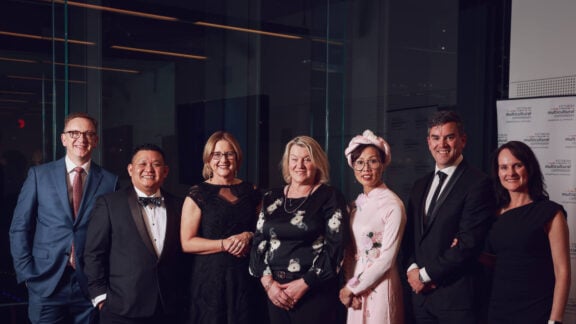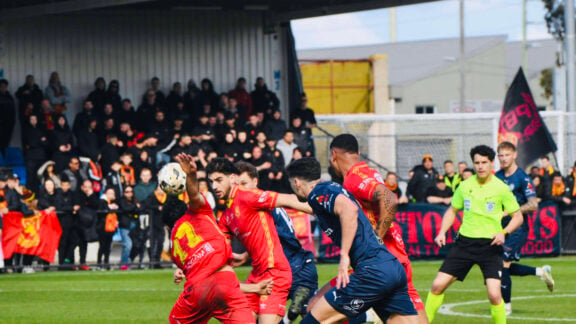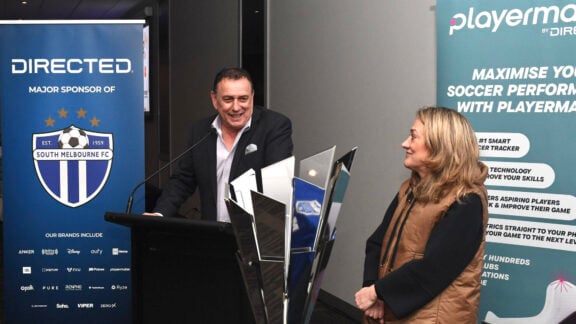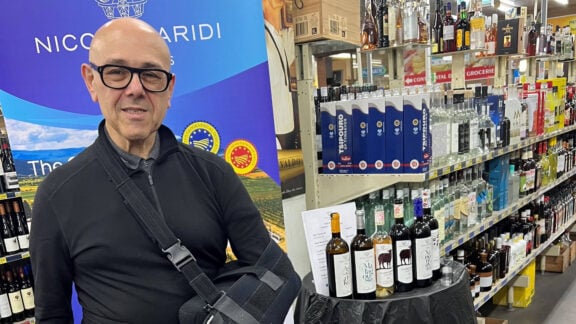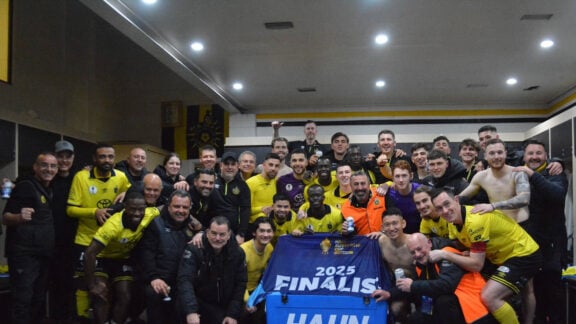Spreading the word about the achievements of women on the world’s foremost online encyclopaedia, Wikipedia, is one aspect of getting the message across for Dr Melina Georgousakis, the Greek-Australian founder of Franklin Women, the only professional community organisation in Australia which is dedicated to supporting the careers of women working across the health and medical research ecosystem.
The presence of women on Wikipedia is low, just 19 percent of the profiles are women and Dr Georgousakis is determined to redress this balance with a Wikipedia Edit-A-thon in 2019. It was part of a global effort to ensure the online platform would have a better representation of women. Over 70,000 profiles about women around the world have since been added as a result.
On World Health Day, 7 April, the second Wikipedia Edit-A-thon took place and 32 women scientists joined forces under the auspices of Franklin Women and biopharmaceutical company AbbVie Australia to add 33,100 words of notability to raise the profiles of Australian women scientists.
They were able to create 16 new articles for Australian women scientists and added 327 references.
“‘Much of the work that was done was to add more information and references to enhance Wikipedia entries.
The bottom segment of any Wikipedia entry will include lists of cultural references, publications of work as research and conference papers, books or media articles, references, citations and external links all of which enhance the Wikipedia profiles of the women concerned.

“Women who are leading scientific research who reach a stage in their career when they could be receiving the due recognition for their work but will often not have the time to update their work on channels like Wikipedia because they may be focused on raising families or looking after elderly parents. It is not easy to give time to other things,” she said.
“One of the challenges with writing Wikipedia pages for women in any field, is that there is not often public and citable evidence of their achievements because women are not as often recognised by awards or quoted in media. This is both because of unconscious bias but also barriers preventing women to put their hands up for such opportunities – often taking on additional roles at home and work which are competing interests’
“Editing Wikipedia is not straight forward A lot of criteria need to be met, through the Wikipedia Edit-A-thon we saved them having to do this work for themselves. It is one small way to redress the balance. In the health sector 50 percent are women yet just 10 percent are leaders.
Dr Georgousakis founded Franklin Women (in honour of noted UK researcher Rosalind Franklin) in 2014 as a for-profit social enterprise that aims to create a health and medical research sector where women thrive. And one way to do this is to improve the visibility of women and their contributions to the field online.
Getting the names of more women in the health and medical research sector is not just about redressing a balance – more than half the scientists and researchers in the sector are women, says Dr Georgousakis – but it is also about ensuring that the people best placed to specifically understand women’s health issues, are properly recognised so that they can provide more effective health options for women.
After all it is a field to which they are qualified to understand by virtue of their gender.
“Improving the representation of women in the health and medical research sector is not just about redressing a balance, says Dr Georgousakis. It is also plays an important role in ensuring that as a sector we are doing research that best meets the needs of the community. With fewer women in leadership roles it has resulted in less research on women health issues, which is the health of 50% of our population. So by working hard to support women in this workforce benefits us all,” said Dr Georgousakis.



